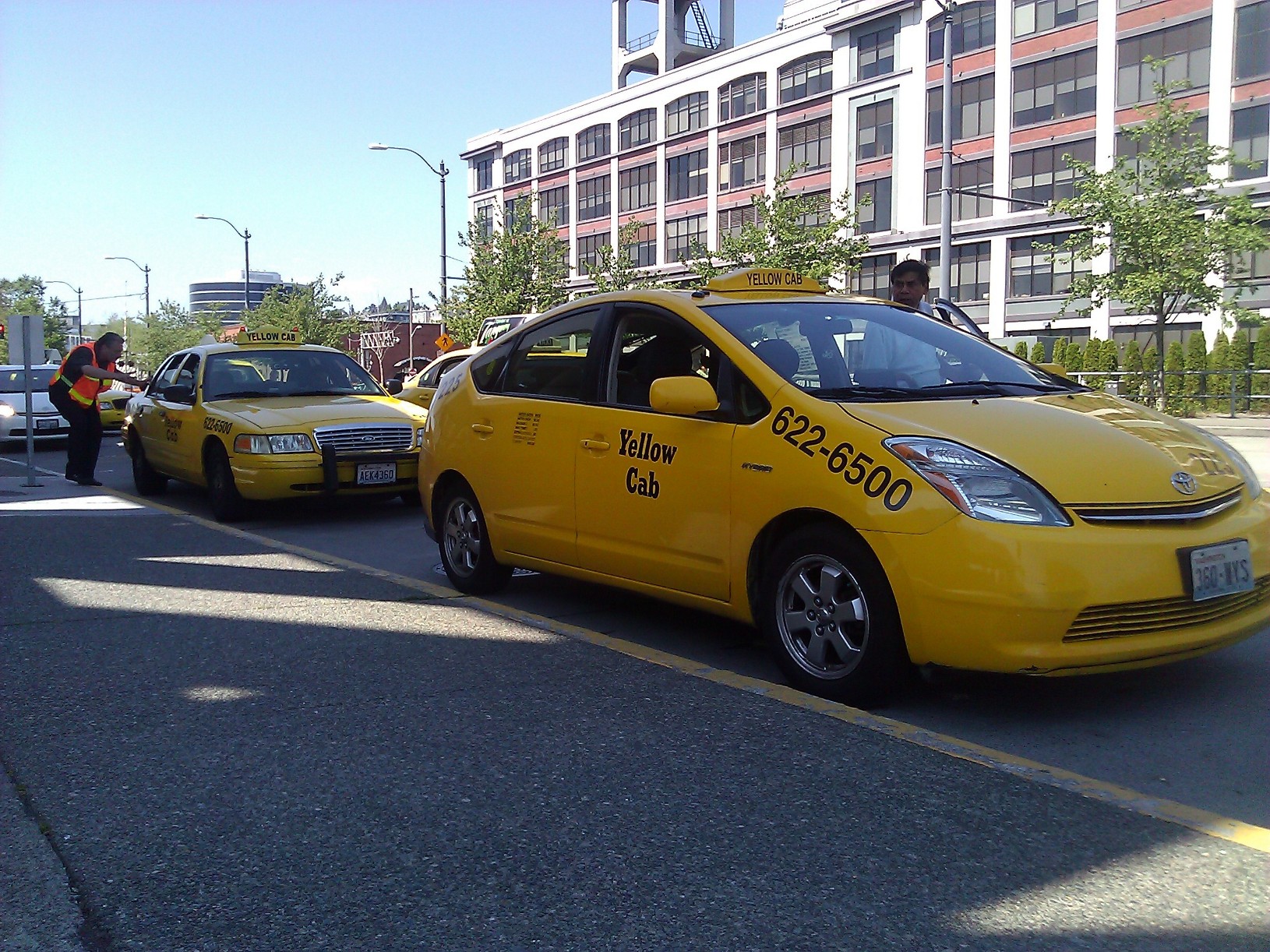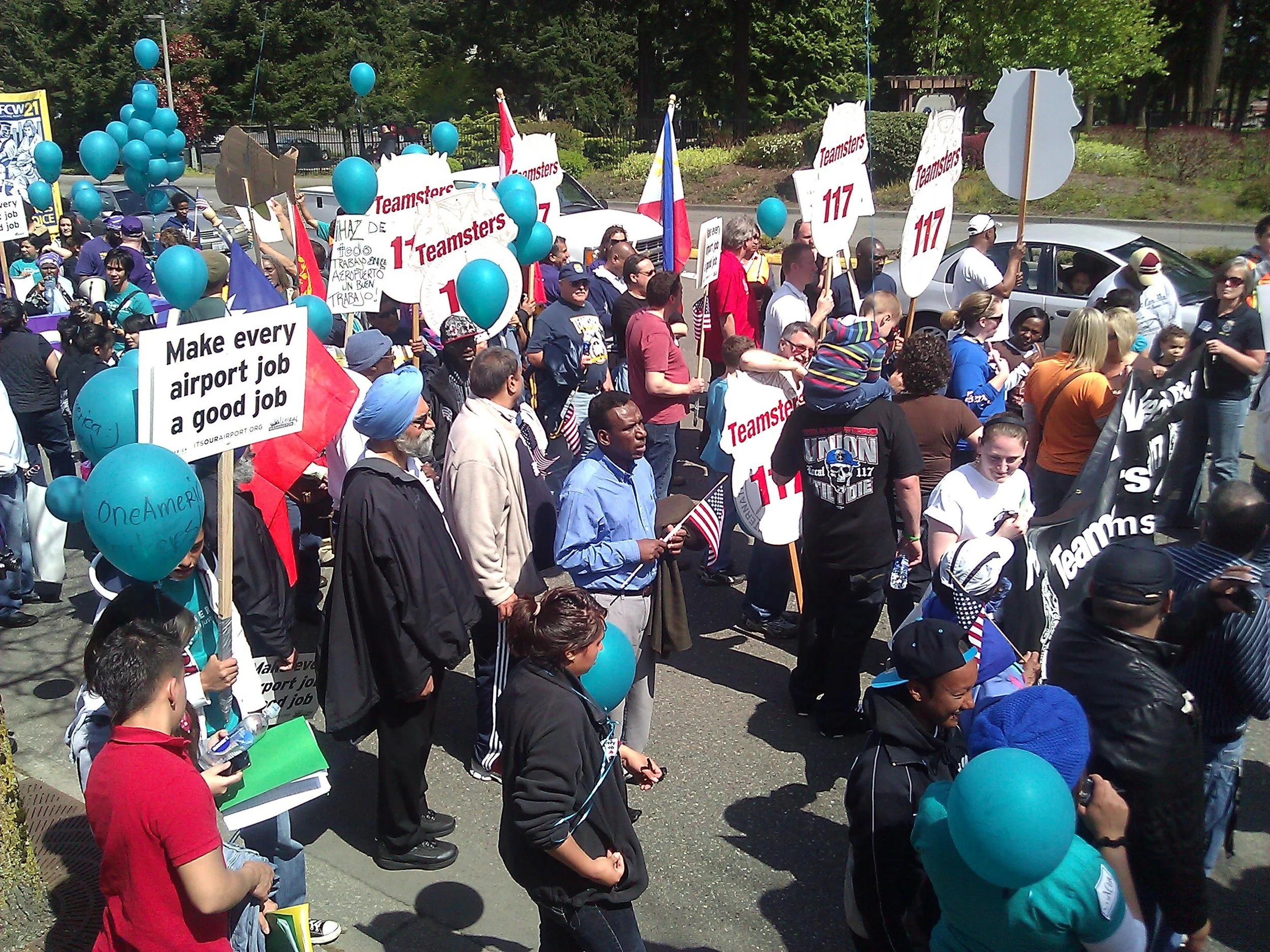By Nate Jackson
Selah Mohammed, a taxi driver sporting sunglasses and a light blue button up shirt, spoke to the gathered media as tourists stood in line to board the cruise ship outside of the Port of Seattle’s headquarters on Pier 69.
“We, the taxi drivers, are part of this airport,” he said. “We provide a great service and we take pride in the work we do. We want the Port to solve this problem and enforce their own rules.”
Taxi drivers have a hard time making ends meet. Most of the cabbies start the week in a $1000 hole due to fees and regulations and have to dig themselves out before they make anything they can take home to their families. They already have enough challenges just to break even and now the Port of Seattle is making it harder by not enforcing its own rules that govern ground transportation at our airport.

And don’t forget, it is our airport. Our airport is publicly owned and ran by the Port of Seattle. The Port is supposed to make sure that the airport works for the workers and customers alike and so far they have been failing the taxi drivers.
Sea-Tac Airport taxi cab drivers are fed up with the Port of Seattle’s lax enforcement of its own rules. They have tried to get the Port to respond for the past three months to no avail so they formed the Western Washington Taxi Cab Operators Association, which has never been done before at Sea-Tac Airport and sent a small delegation to deliver a letter the association created demanding the Port follow its own rules.
The letter, authorized by the hundreds in the taxi driver association, is addressed to the executives of the Port of Seattle who oversee the operations of the airport. The simple demand is for the Port do its part and follow its own rules.
Selah Mohammed continues.
“We are here to deliver a letter to Tay Yoshitani, the CEO of the Port of Seattle,” he said. “We are working hard every day to help this airport work and we follow the rules. We just want everyone else to follow them too.”
This isn’t about taxi driver vs limo driver. It is a direct appeal to the Port of Seattle to make sure that everyone follows the rules and is on an equal basis so that the “competition” can be on a level playing field. The taxi drivers just want a fair chance as they have always abided by the strict rules that the Port created.
After all it is our port, publicly owned, and if it is truly supposed to be an economic engine for the region, it needs to make sure that all the players can get out of first gear.
Another driver, Paul Singh, came forward as he pointed to the over sized copy of the letter.
“We are bound to follow the rules,” he said thumbing at the letter. “The Port is going around their own rules like they don’t matter. It’s not fair and we want it to stop.”
Passengers should have the choice in what transportation they take when they arrive at our port. Competition, when done fairly, is a good thing that drives workers to provide better service and gives customers choice. The problem is that other transportation options are not being forced to follow the stringent rules that cabbies are and this hurts the competitiveness of the taxi drivers. Taxi drivers should have a decent shot at making a living.
“We just want the competition to be fair.” he said. “We’ve formed an association and we are all in this together.”
After answering some questions from the gathered reporters the dozen taxi drivers entered the Port of Seattle Headquarters and asked to speak with Tay Yoshitani. The person at the front desk informed them that Yoshitani was not in, but she called up an executive to speak with them.
The taxi drivers delivered the letter and the signatures to an executive named Tomm Munroe, thanked him for his time and went back outside to answer more questions from the press.
The drivers don’t want anything special. All they want is fair treatment and the Port of Seattle to play by its own rules. The ball is in the Port of Seattle’s court now. Let’s see what they do.


















